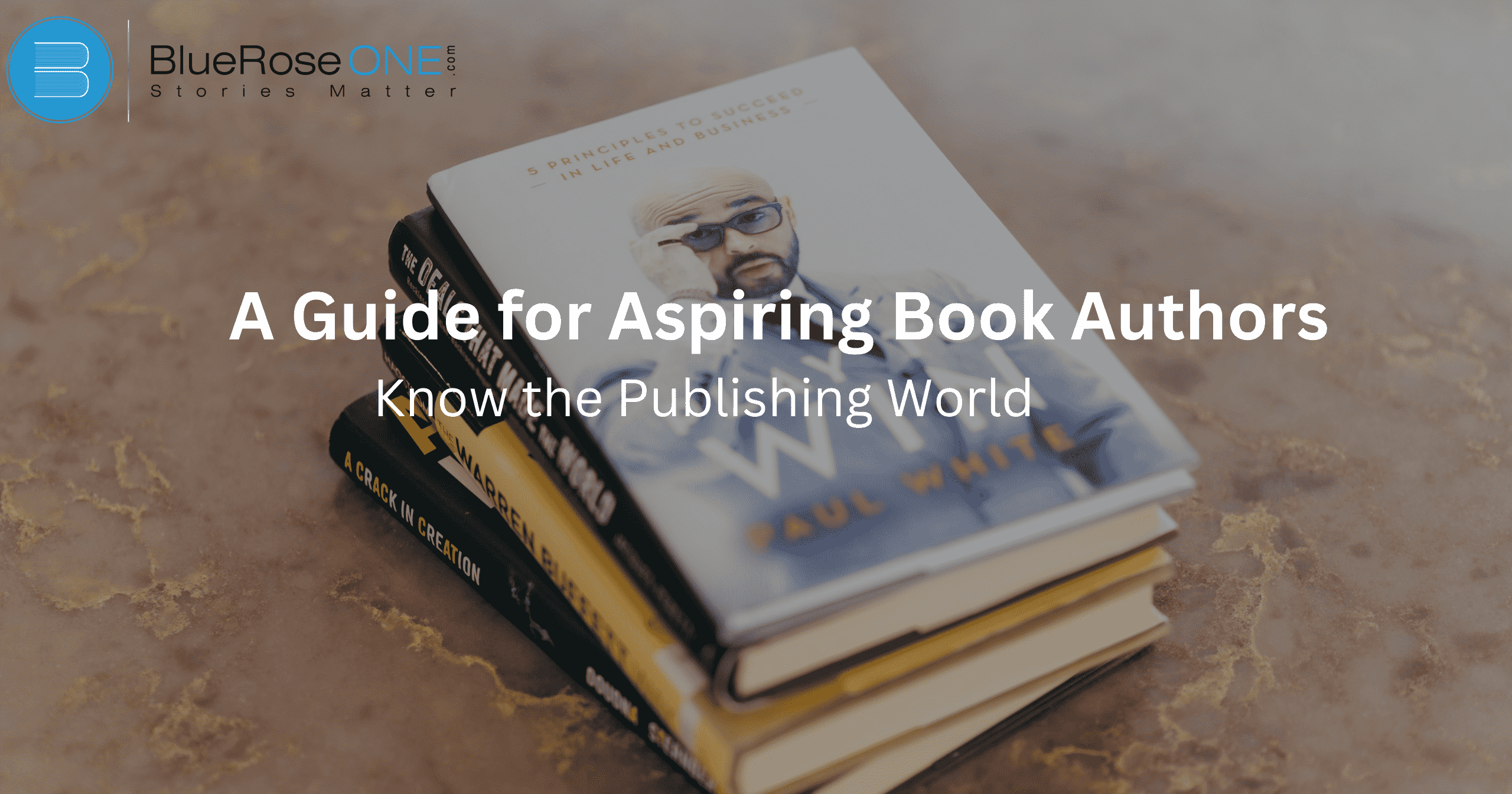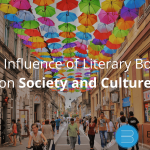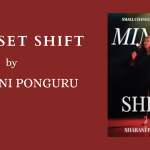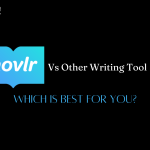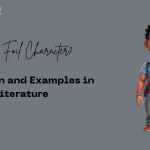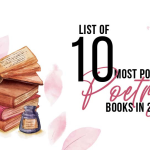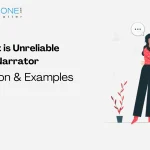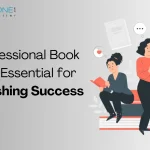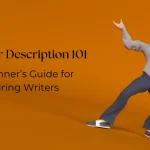Entering the world of publishing is a significant step for aspiring book authors. Whether you’re penning your first novel, a collection of poems, or a non-fiction work, understanding the ins and outs of the publishing industry is crucial for success.
Different Publishing Options
Navigating the publishing world can be a daunting task for aspiring book authors, but understanding the different publishing options can make the journey smoother. Traditional publishing involves submitting your manuscript to literary agents or publishing houses, who handle editing, printing, and distribution.
Self-publishing gives authors full control over their work, from editing to marketing, but requires more effort in promotion. Hybrid publishing blends elements of both, offering professional services while allowing authors to retain some control. Whatever path you choose, it’s essential for book authors to weigh the pros and cons of each option to find the best fit for their goals and aspirations.
Traditional Publishing vs. Self-Publishing
The assistance of a publishing house, such as expert editing, book cover design, and marketing, is provided by traditional publishing. It can, however, be a drawn-out and competitive procedure that calls for the submission of manuscripts and literary agents.
Self-publishing, on the other hand, gives writers more freedom and expedited release dates. Self-publishing entitles writers to a larger share of income, but it also means more work in terms of marketing and distribution.
You may also like: Book Writing | 10 Essential Tips for Beginner Book Writing
Preparing Your Manuscript
Make sure your manuscript is polished and ready for review before submitting it for publication. In addition to creativity, writing a captivating manuscript requires attention to detail and a commitment to edit and improve your work.
Writing Tips for Aspiring Authors
- Start with a clear outline to guide your writing process.
- Show, don’t tell: use descriptive language to bring your characters and settings to life.
- Edit ruthlessly: cut unnecessary words and tighten your prose.
- Seek feedback from beta readers or writing groups to gain different perspectives on your work.
Editing and Revising Your Manuscript
Learning the craft of editing and rewriting your work is essential to becoming a successful book author. Editing is more than just proofreading for grammar or typos—it’s also about honing your story, developing your characters, and making sure your plot makes sense. Through revision, you can examine your work with a fresh perspective and find areas for improvement.
Since editing and revising are iterative processes, aspiring book authors must embrace them since that’s where the magic happens. Keep in mind that every word you polish puts you one step closer to perfection and raises the likelihood that your work will stand out in the crowded publishing world.
You may also read: Top 5 Mistakes to Avoid When Using a Book Cover Maker
Researching Literary Agents and Publishers
It can be difficult for aspiring authors to navigate the publishing world, but with careful investigation, locating the ideal publisher or literary agency becomes easier. Book authors should look into a variety of aspects, including reputation, submission criteria, and genre suitability, when studying literary agencies and publishers.
Seek for publishers or agencies who have experience representing authors similar to you and who specialize in the genre of your work. To obtain information and make defensible decisions, make use of industry databases, networking opportunities, and online tools. Book authors can improve their chances of finding the ideal fit for their project and navigating the publishing process successfully by devoting time to study.
Finding the Right Literary Agent
Finding the perfect literary agent can make all the difference for budding authors, even though navigating the publishing world can be intimidating. These individuals from the industry serve as champions, assisting writers in navigating the challenging world of publishing.
It’s important for authors of books to do extensive research on possible agents before pursuing representation to make sure they have a successful track record and specialize in the genre. Developing a close relationship with an agent who shares your vision can lead to publishing chances and offer priceless assistance from manuscript to book rack. A crucial first step on the road to publishing for prospective authors is selecting the appropriate literary agency.
Identifying Suitable Publishers for Your Genre
Finding the perfect literary agent can make all the difference for budding authors, even though navigating the publishing world can be intimidating. These individuals from the industry serve as champions, assisting writers in navigating the challenging world of publishing.
It’s important for authors of books to do extensive research on possible agents before pursuing representation to make sure they have a successful track record and specialize in the genre. Developing a close relationship with an agent who shares your vision can lead to publishing chances and offer priceless assistance from manuscript to book rack. A crucial first step on the road to publishing for prospective authors is selecting the appropriate literary agency.
You may also like: Marketing Strategies for Self Published Novels | Get Noticed
Submitting Your Manuscript
It can be difficult to navigate the publishing industry, especially for aspiring authors who are anxious to have their manuscripts published. The process of sending your work to literary agencies or publishers is an important one. Thorough preparation is essential if you want to improve your chances of success.
Start by looking into possible agencies or publishers who specialize in your genre or area of interest. Make sure your submission package is specific to each recipient and emphasizes what makes your work stand out from the competition. Recall that throughout this process, perseverance and patience are virtues.
Aspiring book authors can increase their chances of being noticed by the proper publisher or agency and eventually fulfill their publishing aspirations by carefully writing their submission.
Crafting a Compelling Query Letter
Writing a strong query letter is essential for book authors who want to succeed in the cutthroat publishing world. As your manuscript’s representative, this one-page pitch convinces publishers and literary agents to consider your work. Start your story with an intriguing hook that makes the reader want to learn more.
Clearly state the idea of the book and emphasize what makes it unique from the others. Give readers a flavor of your writing voice and style by showcasing them. Never forget that submitting a strong query letter is the first step towards getting representation and, eventually, getting your work published.
You may also like: 5 Key Steps to Successfully Self Publishing Your Novel
Following Submission Guidelines
For aspiring book authors hoping to get published, it’s critical to adhere to submission standards. These instructions will help you navigate the complex process of submitting a paper, just like a roadmap might. Following these rules, which may include formatting specifications, recommended genres, or submission portal preferences, shows professionalism and consideration for the publisher’s time and resources.
Ignoring them could lead to your manuscript being passed over, no matter how good it is. As such, give careful consideration to and adherence to every condition provided by the publisher. By doing this, you not only improve your chances of getting accepted, but you also demonstrate your dedication to quality in the publishing industry.
Navigating the Publishing Contract
A publishing contract will probably be offered to you if a literary agent or publisher shows interest in your work. In order to make sure you’re getting a fair bargain and safeguarding your rights as an author, it’s imperative that you comprehend the conditions of the contract.
Understanding Contract Terms and Royalties
For aspiring book authors, navigating the publishing world may be quite difficult, particularly when it comes to comprehending contract terms and royalties. Understanding the nuances of these contracts is essential for creators in order to guarantee just pay for their laborious efforts. Contract terms control everything, including distribution and rights, thus it’s critical to thoroughly read them.
Another important thing to think about is royalties, which are often a portion of book sales. In order to optimise their earnings from their works, authors ought to bargain for advantageous royalties. Book authors may confidently and clearly navigate the publishing landscape by learning these details.
Negotiating Favorable Terms
Success in the literary world for aspiring book authors depends critically on their ability to comprehend the subtleties of a publication contract. It is critical that you stand up for your rights and interests during terms negotiations. Authors of books should carefully examine advance payments, royalty rates, and ownership of rights.
Make sure the contract safeguards your creative work and is in line with your long-term objectives. Never be afraid to ask for expert counsel or to bargain for changes to the contract. Book authors can maximize their prospective profits and lay a strong foundation for their literary careers by fighting for fair terms.
You may also like: Demystifying Self-Publishing vs. Traditional Publishing: Which Is Right for You?
The Editing Process
Once you’ve signed a publishing contract, the editing process begins. Working with editors is an opportunity to improve your manuscript further and ensure that it meets the publisher’s standards for quality and marketability.
Working with Editors
Aspiring book authors need to know how important it is to collaborate with editors as they navigate the publishing industry. These experts serve as a link between your manuscript and its polished, publication-ready version. Working with editors is a mutually beneficial relationship where their attention to detail and proficiency with language polishing enhance your creative vision.
Aspiring book authors can receive thorough editing, constructive criticism, and structural assistance by handing their work to experienced editors. Accepting this collaboration improves your manuscript’s quality and makes it more appealing to readers and publishers, which opens the door to a successful publishing career.
Receiving Feedback and Making Revisions
Getting criticism and making changes are essential parts of the editing process for authors of books. Feedback that is constructive from peers, editors, and beta readers can help you refine your book in ways that are very beneficial. Accept criticism with an open mind, understanding that it will help you improve the quality and attractiveness of your work.
Revisions should be approached with an open mind, emphasizing the enhancement of narrative flow, coherence, and clarity. Recall that the objective is constant progress rather than perfection, which will ultimately guarantee that your book has a deep emotional impact on readers.
Cover Design and Book Formatting
A professionally designed cover and well-formatted interior are essential for attracting readers and providing a positive reading experience. Invest time and resources in creating a visually appealing book that stands out on bookstore shelves and online platforms.
Importance of Professional Cover Design
In the fast-paced world of publishing, aspiring authors of books frequently underestimate the importance of a well-designed cover. But it’s critical to understand how important it is in drawing readers in and establishing the tone for the entire work. A well-designed cover conveys the spirit of the content within while also enhancing the book’s aesthetic appeal.
Investing in a good book cover design is like investing in the presentation of one’s literary masterpiece for authors of books. A reader’s decision to continue reading can be influenced by their initial impression. Thus, managing the publishing industry’s competitive terrain requires an awareness of the significance of professional cover design.
Formatting Guidelines for Print and E-Books
Book authors frequently struggle with the subtleties of formatting for print and e-books because they are so eager to see their ideas come to life. Understanding the unique prerequisites for every format is essential to achieving a professional output.
Paying close attention to the layout, fonts, and margins during printing guarantees legibility and visual appeal. E-books, on the other hand, require flexible formatting to fit a range of devices and screen sizes. The secret is to prioritize readability without sacrificing the author’s intent. Book authors can improve their work and captivate readers on traditional and digital platforms by following these formatting rules.
You may also like: 10 Effective Strategies to Improve Your Reading Habits
Legal Considerations
Understanding the legal aspects of publishing is essential for protecting your rights as an author and avoiding potential legal pitfalls. Educate yourself on copyright law, intellectual property rights, and other legal considerations relevant to the publishing industry.
Copyright and Intellectual Property Rights
For those who want to write books, it is essential to comprehend copyright and intellectual property rights in the complex world of publishing. These rights ensure that creative works stay solely theirs and protect the results of their labor. Understanding these legal issues is not only helpful, but necessary for book authors.
The exclusive right to reproduce, distribute, and exhibit one’s own work is conferred upon authors under copyright. It acts as a barrier against unapproved use or duplication, preserving their original work and guaranteeing they are fairly acknowledged and compensated for their literary achievements.
To protect your writing and establish your reputation in the publishing world, you must have a solid understanding of these rights in order to navigate the publishing landscape.
Understanding Publishing Contracts and Agreements
Aspiring authors of books have to skillfully negotiate the nuances of contracts and agreements in the complex world of publishing. It is essential to comprehend publishing contracts and agreements in order to protect writers’ rights and provide just pay for their artistic endeavors.
These contracts outline the conditions of cooperation between writers and publishers and address important issues including distribution, rights, and remuneration. Book authors can negotiate better terms and safeguard their intellectual property by fully understanding these agreements.
Authors can boldly start their publishing career with meticulous attention to detail and legal counsel, ready to succeed in the cutthroat literary world.
Networking and Building Relationships
Networking and building relationships with other authors and industry professionals can open doors and create opportunities for collaboration and growth. Take advantage of networking events, writer conferences, and online communities to expand your circle and learn from others in the industry.
Connecting with Other Authors and Industry Professionals
Aspiring book authors frequently find comfort and priceless insights amid the maze of the publishing industry by interacting with other writers and professionals in the field. Within the literary community, establishing connections and networking not only promotes friendship but also offers doors to new prospects.
Talking with other authors provides a forum for idea exchange, experience sharing, and critical guidance on negotiating the difficulties of the business. Creating relationships with like-minded people through events like book fairs and conventions, writer’s workshops, and online writing communities is beneficial for both professional and personal development.
Accepting teamwork and developing deep connections with professionals in the field may hold the secret to success in the pursuit of publication as a published author.
You may also like: Typical Errors in Book Editing to Avoid | Essential Guide
Attending Writer Conferences and Events
Attending writer conferences and events can be quite helpful for aspiring book authors in navigating the challenging world of publishing. These events provide priceless chances to network with other authors, business leaders, and possible mentors.
Participating in workshops, panel discussions, and one-on-one consultations can offer valuable perspectives on the complexities of the publishing process, ranging from manuscript optimisation to promotional tactics.
In addition, these gatherings help book authors feel more connected to one another by providing support and motivation throughout the publishing process. Aspiring book authors can build their network and acquire important tools to advance their professions by actively participating in writer conferences and events.
Conclusion
It might be difficult to navigate the publishing world, but with the correct information and planning, aspiring writers can fulfill their publishing dreams and tell their stories to a global audience. Authors can improve their chances of success and realize their aspirations of being published by developing their craft, learning about the publishing process, and networking within the industry.
Frequently Asked Questions
The timeline for publishing a book can vary widely depending on factors such as the genre, the publishing route (traditional vs. self-publishing), and the individual publisher’s timelines. On average, traditional publishing can take anywhere from one to two years from manuscript submission to publication, while self-publishing offers faster turnaround times, typically ranging from a few months to a year.
While having a literary agent can increase your chances of securing a traditional publishing deal, it’s not always necessary, especially for certain genres or niche markets. Many publishers accept submissions directly from authors, although having an agent can help you navigate the publishing industry and negotiate more favorable contract terms.
Copyright law automatically protects your original work from being copied, distributed, or adapted without your permission. However, it’s essential to take proactive steps to deter plagiarism, such as including a copyright notice in your book, registering your copyright with the appropriate authorities, and monitoring for unauthorized use of your work online.
Self-publishing offers authors greater creative control, faster publication timelines, and higher royalties compared to traditional publishing. It allows authors to retain ownership of their work and reach readers directly through online platforms such as Amazon Kindle Direct Publishing (KDP) and BlueRose Publishers.
There are many cost-effective ways to market your book, even with a limited budget. Consider leveraging social media platforms, participating in online book clubs and forums, reaching out to book bloggers and influencers for reviews, and offering promotional discounts or giveaways to generate buzz and attract readers.

